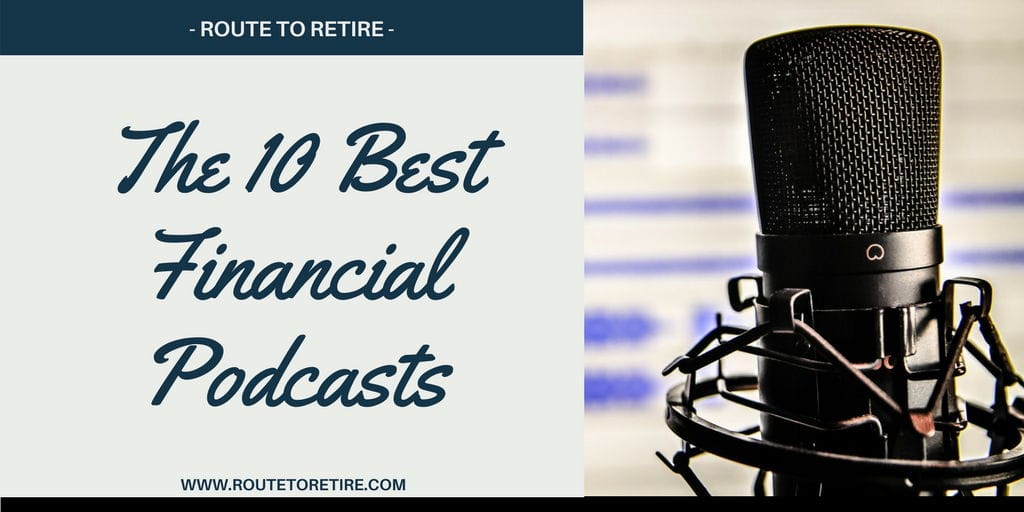Financial Podcasts Overview

Financial podcasts are audio programs that focus on various aspects of personal finance, investing, budgeting, and other money-related topics. They offer listeners the opportunity to learn from experts, get valuable tips, and stay updated on the latest trends in the financial world.
Listening to financial podcasts can be beneficial for individuals looking to improve their financial literacy, make informed decisions about money management, and gain insights into building wealth and securing their financial future.
Popular Financial Podcasts and Their Unique Features
- The Dave Ramsey Show: Hosted by personal finance guru Dave Ramsey, this podcast offers practical advice on getting out of debt, building wealth, and achieving financial freedom.
- So Money with Farnoosh Torabi: Farnoosh Torabi interviews financial experts, authors, and entrepreneurs to discuss money-related topics and share inspiring stories of financial success.
- Planet Money: This podcast by NPR covers a wide range of economic and financial issues in an engaging and informative way, making complex topics easy to understand for listeners.
Podcast Content

Financial podcasts cover a wide range of topics related to personal finance, investing, budgeting, retirement planning, and more. These podcasts aim to educate and inform listeners about various aspects of managing their finances effectively.
Typical Topics Covered
- Investing strategies and tips
- Financial planning for different life stages
- Debt management and reduction
- Estate planning and wealth preservation
- Taxation and tax-saving strategies
Insights into Financial Trends and News
Financial podcasts often provide timely updates on current financial trends, market developments, and economic news. Hosts and guest experts analyze the impact of these trends on personal finances, investments, and overall financial well-being. Listeners can gain valuable insights and stay informed about the latest happenings in the financial world.
Catering to Different Levels of Financial Knowledge
- Beginners: Podcasts offer basic financial literacy lessons, money management tips, and guidance on building a strong financial foundation.
- Intermediate: Listeners with some financial knowledge can benefit from discussions on advanced investing strategies, retirement planning techniques, and wealth-building tactics.
- Experts: Financial podcasts also cater to seasoned investors and financial professionals by delving into complex financial topics, market analysis, and in-depth discussions on specialized areas of finance.
Podcast Hosts and Guests

When it comes to financial podcasts, the hosts and guests play a crucial role in providing valuable insights, information, and diverse perspectives to the listeners. Knowledgeable hosts can guide the conversation effectively, while guest experts can offer specialized expertise on various financial topics.
Importance of Knowledgeable Hosts
Knowledgeable hosts are essential in financial podcasts as they set the tone for the show, steer the conversation, and ensure that complex financial topics are explained in a clear and understandable manner. They bring credibility to the podcast and help build trust with the audience through their expertise and experience.
Role of Guest Experts
Guest experts in financial podcasts provide a fresh perspective, share in-depth knowledge on specific topics, and offer insights that the hosts may not possess. They enhance the overall quality of the podcast by bringing diverse viewpoints and expertise, making the content more engaging and informative for the listeners.
Examples of Renowned Hosts and Guests
– Dave Ramsey: A well-known financial expert who hosts “The Dave Ramsey Show,” offering practical financial advice and strategies.
– Suze Orman: An acclaimed financial advisor and host of “The Suze Orman Show,” known for her straightforward approach to personal finance.
– Tim Ferriss: While not exclusively focused on finance, Tim Ferriss has hosted episodes with financial experts like Ramit Sethi, sharing valuable insights on money management and investing.
Podcast Format and Structure
Financial podcasts come in various formats that cater to different preferences and learning styles. These formats include interviews, solo episodes, panel discussions, and more. Each format offers a unique way of delivering content and engaging with the audience.
Different Podcast Formats
- Interviews: In this format, podcast hosts invite experts, industry professionals, or influencers to discuss various financial topics. Listeners get to hear different perspectives and insights from the guests.
- Solo Episodes: Hosts present information, share personal experiences, and provide educational content on their own. This format allows for a more focused discussion on specific topics.
- Panel Discussions: Multiple guests or experts come together to have a conversation on a particular financial subject. This format encourages dynamic interactions and diverse viewpoints.
Impact of Podcast Structure on Engagement
Podcast structure plays a crucial role in determining the listener’s engagement and learning experience. A well-organized and coherent structure can enhance comprehension, retention, and overall enjoyment for the audience. Clear transitions between segments, engaging storytelling, and effective pacing can keep listeners hooked throughout the episode.
Ideal Podcast Length and Frequency
- Podcast Length: The ideal podcast length for financial education generally ranges from 20 minutes to an hour. This duration allows hosts to delve into topics in sufficient detail without overwhelming the audience. However, the length can vary based on the complexity of the subject matter and the target audience’s preferences.
- Podcast Frequency: Consistency is key when it comes to podcast frequency. Regularly scheduled episodes, whether weekly, bi-weekly, or monthly, help build a loyal audience and maintain engagement. Finding the right balance between quality content and frequency is essential for effective financial education.
Audience Engagement
Financial podcasts often engage with their audience through interactive segments or Q&A sessions to create a more dynamic and participative listening experience. By incorporating listener feedback and questions, podcast hosts can shape the content to cater to the specific interests and needs of their audience. Successful audience engagement strategies used by financial podcasts aim to foster a sense of community and connection among listeners, ultimately enhancing the overall listening experience.
Interactive Segments and Q&A Sessions
- Many financial podcasts include interactive segments where listeners can call in, email, or leave voicemails with their questions or comments.
- Q&A sessions with experts or industry professionals allow listeners to get personalized insights and advice on financial matters.
Listener Feedback and Content Shaping
- Podcast hosts often incorporate listener feedback and questions into their episodes, addressing topics that are of interest to their audience.
- By actively listening to their audience, hosts can tailor their content to provide valuable information and address common concerns or queries.
Successful Audience Engagement Strategies
- Organizing live virtual events or webinars where listeners can interact with hosts and guests in real-time.
- Creating social media groups or online forums for listeners to connect, share insights, and engage in discussions related to podcast episodes.
- Encouraging audience participation through contests, polls, or surveys to gather feedback and improve the podcast content.